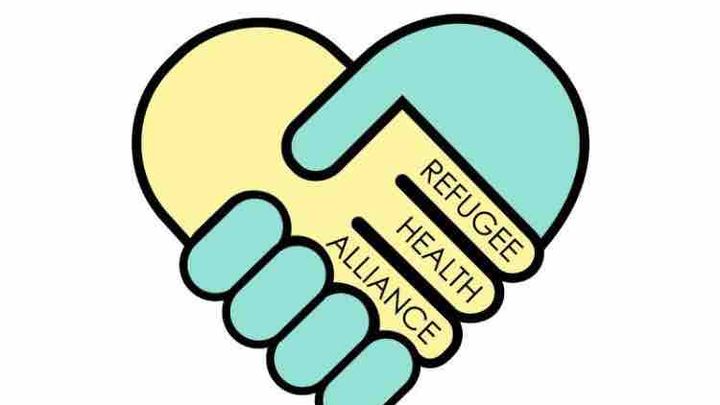
Telehealth for Refugees in Tijuana
Donation protected
The Problem
Health services for asylum-seeking refugees have nearly come to a stop as a result of Covid19 travel restrictions . The local Tijuana clinic for refugees has closed and clinicians are unable to travel to Tijuana to meet with those who are in dire need of medical and mental health support. While migrants may go to Mexican hospitals, doing so is difficult financially and risky as many migrants face persecution by gangs outside of the shelters they are staying in.
How You Can Help
In this time where access to health services and emotional support are critical for all of us, you can donate to help the Refugee Health Alliance (RHA) buy tablets for shelters housing refugees and provide access to telehealth services, connecting medical and mental health providers directly with ~850 refugees in need. Your donation will be used to pay for 10 tablets for 10 shelters, 30 headphones, and a wifi hotspot for one shelter without wifi.
If 30 people donate $25 each and each get 10 of their friends to do the same, you can help provide all ~850 migrants with access to telehealth services.

Refugee Health Alliance (RHA)
In response to multiple communities escaping violence, poverty, and discrimination to seek asylum in the United States, the Refugee Health Alliance (RHA), a 501(c)3 nonprofit, was created in 2018 to help mobilize Southern California health care providers and their networks down to the Tijuana/San Diego international border to aid in the refugee crisis.
As many of the refugees have faced a variety of traumatic adverse experiences affecting their health, the RHA includes a focus on mental health and well-being services in addition to providing emergency medical care. Mental health services have been successfully provided through individual consults, psychosocial support groups, and psycho-education. However, the recent travel restrictions due to the COVID-19 outbreak have halted the provision of almost all medical and mental health services.
To address this gap in services, the RHA is seeking to establish a tele-health network through which refugee individuals are able to connect with clinicians as needed. Through this networks, the following will be facilitated for refugees:
1. Individual mental health consults and psychosocial support as needed
2. Group psychosocial support sessions aimed at addressing collective needs in the refugee communities, implemented separately for adults and children
3. Psycho-education programming aimed at sharing resources and guidance on relevant topics, e.g. caring for children in times of crisis, skills for coping with stress and trauma responses, etc. Members of the RHA mental health team have designed an emergency website to address the refugee's most pressing questions and areas of need during the COVID-19 pandemic. See link: https://rhabienestar.wixsite.com/recursos
4. Virtual medical services, including opportunity to meet directly with health care professionals



Health services for asylum-seeking refugees have nearly come to a stop as a result of Covid19 travel restrictions . The local Tijuana clinic for refugees has closed and clinicians are unable to travel to Tijuana to meet with those who are in dire need of medical and mental health support. While migrants may go to Mexican hospitals, doing so is difficult financially and risky as many migrants face persecution by gangs outside of the shelters they are staying in.
How You Can Help
In this time where access to health services and emotional support are critical for all of us, you can donate to help the Refugee Health Alliance (RHA) buy tablets for shelters housing refugees and provide access to telehealth services, connecting medical and mental health providers directly with ~850 refugees in need. Your donation will be used to pay for 10 tablets for 10 shelters, 30 headphones, and a wifi hotspot for one shelter without wifi.
If 30 people donate $25 each and each get 10 of their friends to do the same, you can help provide all ~850 migrants with access to telehealth services.

Refugee Health Alliance (RHA)
In response to multiple communities escaping violence, poverty, and discrimination to seek asylum in the United States, the Refugee Health Alliance (RHA), a 501(c)3 nonprofit, was created in 2018 to help mobilize Southern California health care providers and their networks down to the Tijuana/San Diego international border to aid in the refugee crisis.
As many of the refugees have faced a variety of traumatic adverse experiences affecting their health, the RHA includes a focus on mental health and well-being services in addition to providing emergency medical care. Mental health services have been successfully provided through individual consults, psychosocial support groups, and psycho-education. However, the recent travel restrictions due to the COVID-19 outbreak have halted the provision of almost all medical and mental health services.
To address this gap in services, the RHA is seeking to establish a tele-health network through which refugee individuals are able to connect with clinicians as needed. Through this networks, the following will be facilitated for refugees:
1. Individual mental health consults and psychosocial support as needed
2. Group psychosocial support sessions aimed at addressing collective needs in the refugee communities, implemented separately for adults and children
3. Psycho-education programming aimed at sharing resources and guidance on relevant topics, e.g. caring for children in times of crisis, skills for coping with stress and trauma responses, etc. Members of the RHA mental health team have designed an emergency website to address the refugee's most pressing questions and areas of need during the COVID-19 pandemic. See link: https://rhabienestar.wixsite.com/recursos
4. Virtual medical services, including opportunity to meet directly with health care professionals



Fundraising team: Mental Health Team (2)
Refugee Health Alliance
Organiser
La Jolla, CA
Zainab Hosseini
Team member